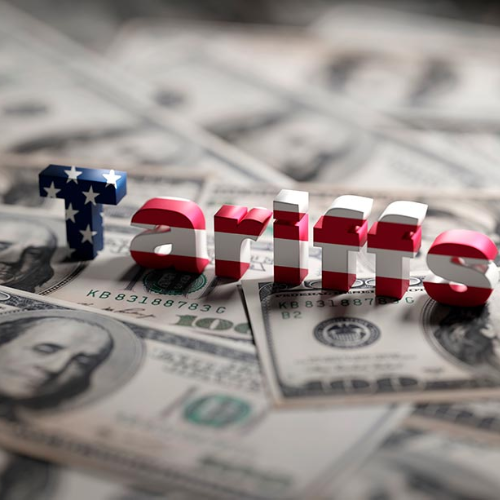Twelve U.S. states are taking President Donald Trump to court over what they describe as unlawful and extreme tariffs on imported goods. In a hearing held by the Court of International Trade in Manhattan, the states asked judges to stop what they call “blank check” use of emergency powers to impose broad taxes.
The states argue that President Trump misused the International Emergency Economic Powers Act (IEEPA) by claiming it gave him full control to impose tariffs on countries that sell more to the U.S. than they buy. According to the lawsuit, Trump treated the law as if it allowed him to set any tariff, on any country, for any reason, and to avoid court review altogether.
Attorney Brian Marshall, representing the state of Oregon, argued that Trump wrongly claimed unlimited power under IEEPA. He told the court that the law only allows actions directly tied to a real and specific national emergency—not for general trade leverage. Marshall added that the U.S. trade deficit and fentanyl trafficking, which the president cited as emergencies, do not qualify under this law as threats requiring such drastic trade measures.
$28 Billion Shockwave: Japan’s Biggest Firms Buckle Under Brutal U.S. Tariff Barrage
Trade Deficit or National Emergency?
President Trump has described the long-standing U.S. trade deficit—a situation where the U.S. buys more goods from other countries than it sells—as a national emergency. Based on this claim, he imposed a 10% tariff on all imported goods in April. Countries with large trade surpluses with the U.S., like China, faced even higher tariffs.
Earlier in February, Trump also used IEEPA to place tariffs on imports from China, Mexico, and Canada, arguing it was necessary to fight illegal fentanyl shipments. The states challenging the tariffs say both reasons are improper uses of emergency powers. They argue that IEEPA was never meant to give presidents open-ended control over trade policy.
The rollout of these tariffs has been unstable. Many of the harsher tariffs were paused just a week after being announced. This month, the administration also lowered some of the tariffs on China while trying to reach a longer-term trade deal. These back-and-forth moves caused major uncertainty in U.S. markets and raised concerns from both businesses and state officials.
Judges Press Both Sides on Limits of Power
During the court hearing, all three judges asked sharp questions. Judge Jane Restani, appointed by a Republican president, asked whether courts really have no power to stop a president’s action once he declares an emergency under IEEPA. She questioned whether anything—even something “crazy or unrelated”—could still be allowed if labeled an emergency.
Tariff-Fueled Trade Tension: Bonded Warehouse Demand Quadruples, Approval Backlogs Hit Six Months
In response, Brett Shumate, a lawyer from the U.S. Department of Justice, said courts should not second-guess the president’s judgment after he uses IEEPA. He argued that tariffs fit under the law’s power to “investigate, regulate, or prohibit” economic actions, even if the law does not specifically use the word “tariff.” Shumate insisted that the purpose of the tariffs was to build pressure for better trade deals, which he claimed is allowed under the law.
Meanwhile, Judge Gary Katzmann, appointed by a Democratic president, asked whether the court should step in at all when it comes to the president’s role in foreign policy. But Marshall, the attorney for Oregon, responded that even the president must follow legal limits. He said emergency powers should be used only when the situation truly requires it—not as a tool for general bargaining.
This case is one of at least seven legal challenges to President Trump’s tariff policies. Another case by small businesses was recently heard by the same judges, and more lawsuits have been filed in other courts by states, companies, and advocacy groups. The Court of International Trade will issue its ruling soon, but appeals could go all the way to the U.S. Supreme Court.


